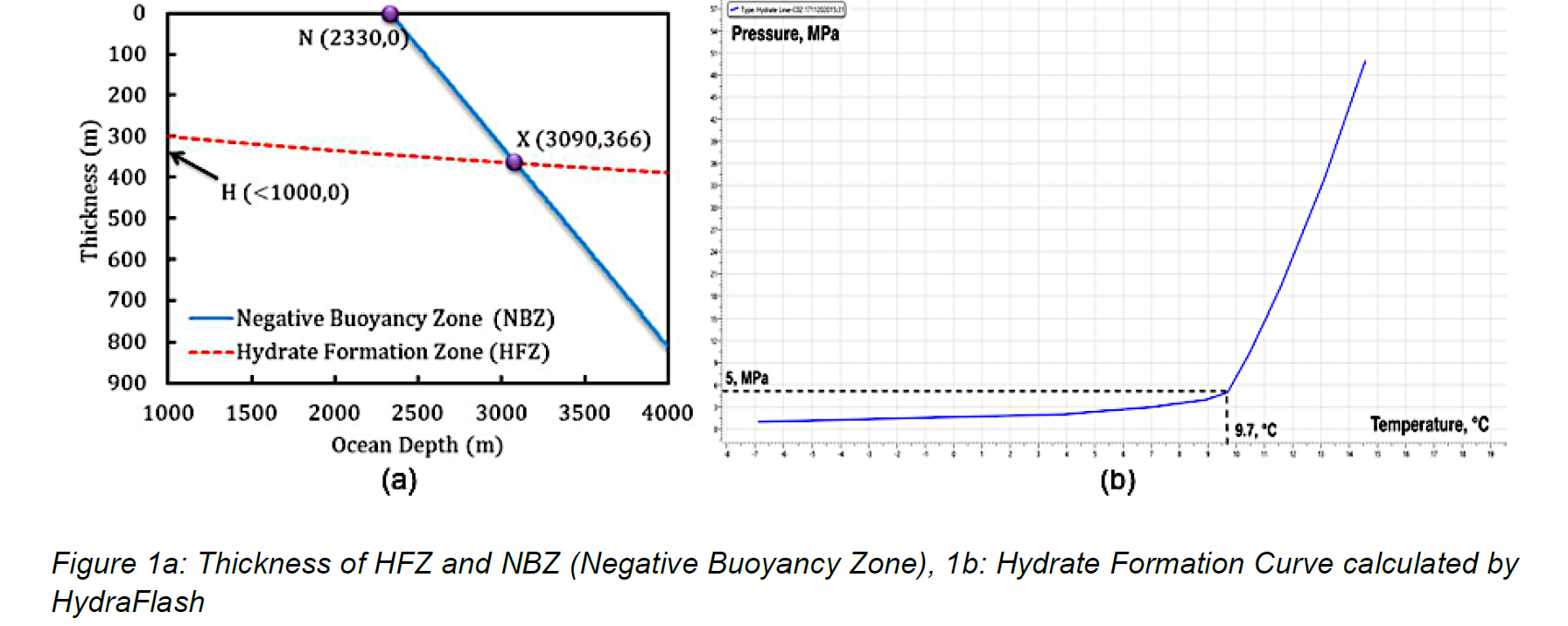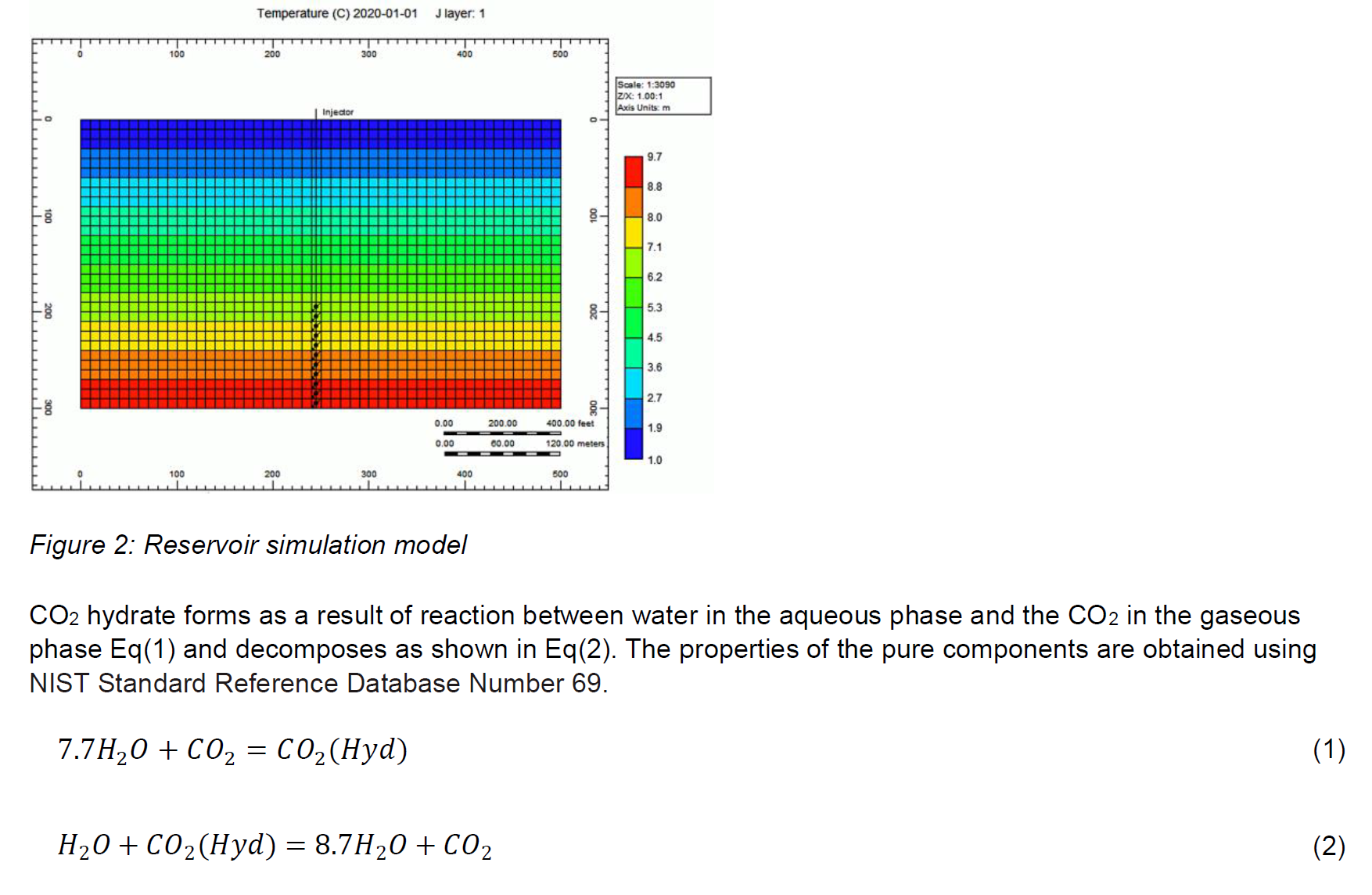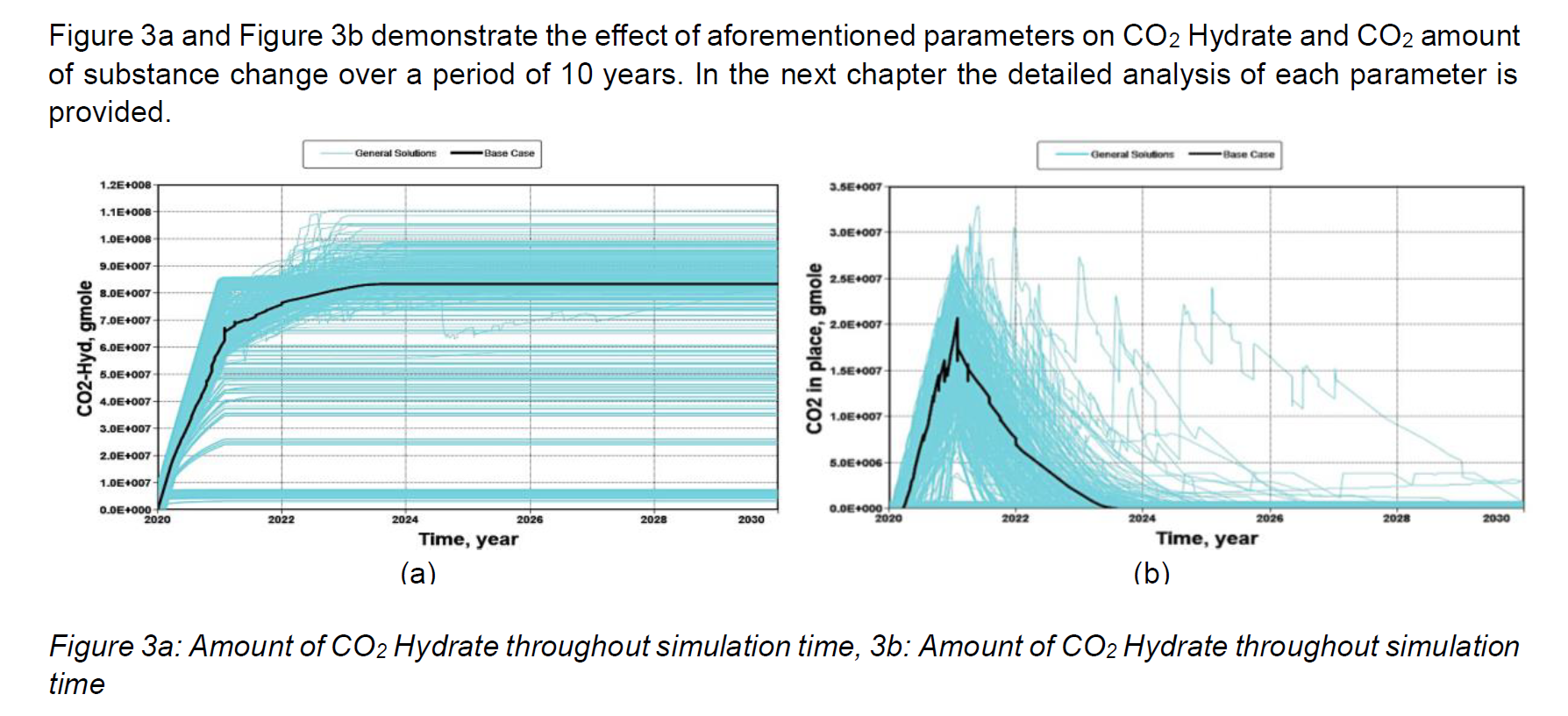Assessment of CO2 Storage as Hydrates in Saline Aquifers using Machine Learning Algorithms
研究调查了将二氧化碳储存在盐水含水层中所面临的挑战,发现水合物形成速率与孔隙度、渗透率、容积热容、参考压力(海洋深度)、岩石导热系数以及注入温度呈现线性或二次变化关系。研究发现渗透率对水合物形成有一定的影响,而注入温度和岩石导热性在研究范围内几乎没有影响。然而,水合物形成速率对孔隙度、参考压力和热容更为敏感。总的来说,研究结果表明在盐水含水层中长期储存二氧化碳是可能的,但取决于储集层的特性。然而,结果也表明水合物形成速率受储层多个参数的影响,这些参数在确定可能的二氧化碳水合物储存位置之前应该被充分考虑。




6. Conclusions
The challenge of CO2 storage as hydrates in Saline Aquifers was investigated. It was found that the rate of hydrate formation varied linearly or quadratically with respect to Porosity, Permeability, Volumetric Heat Capacity, Reference Pressure (Sea Depth), Rock Thermal Conductivity, as well as Injection Temperature, within the studied ranges. Permeability had a moderate effect on hydrate formation, Injection Temperature, and Rock Conductivity showed almost no effect within the investigated range. However, the hydrate formation rate was significantly more sensitive to changes in Porosity, Reference Pressure, Heat Capacity.
To sum up, our results indicate the possibility of long-term storage of CO2 in Saline Aquifers, although it depends on the reservoir characteristics. However, the results show that hydrate formation rate is strongly dependent on several parameters of the reservoir, which should be thoroughly considered before deciding on possible CO2 storage locations in the form of hydrates.
